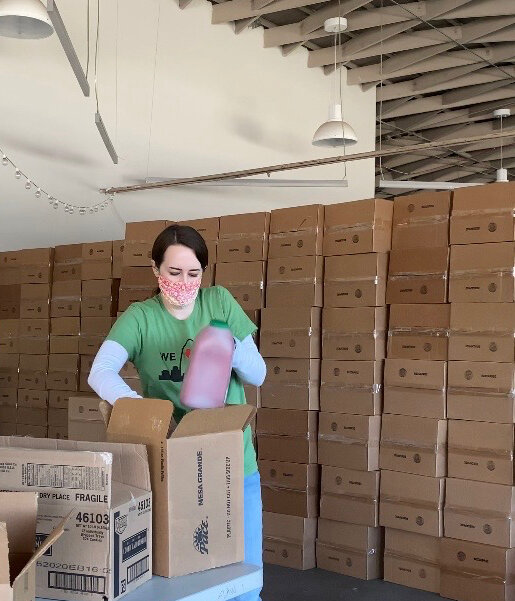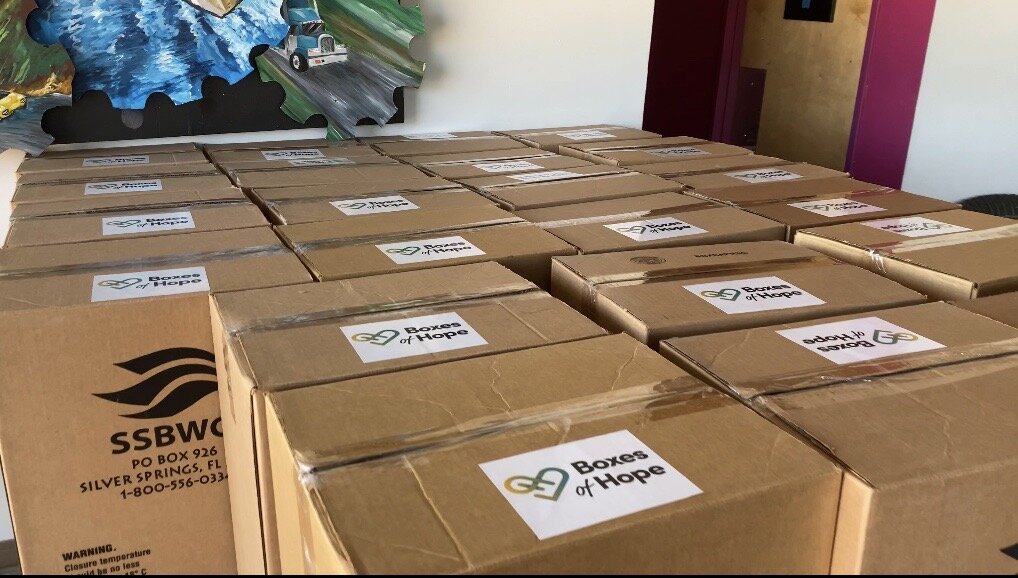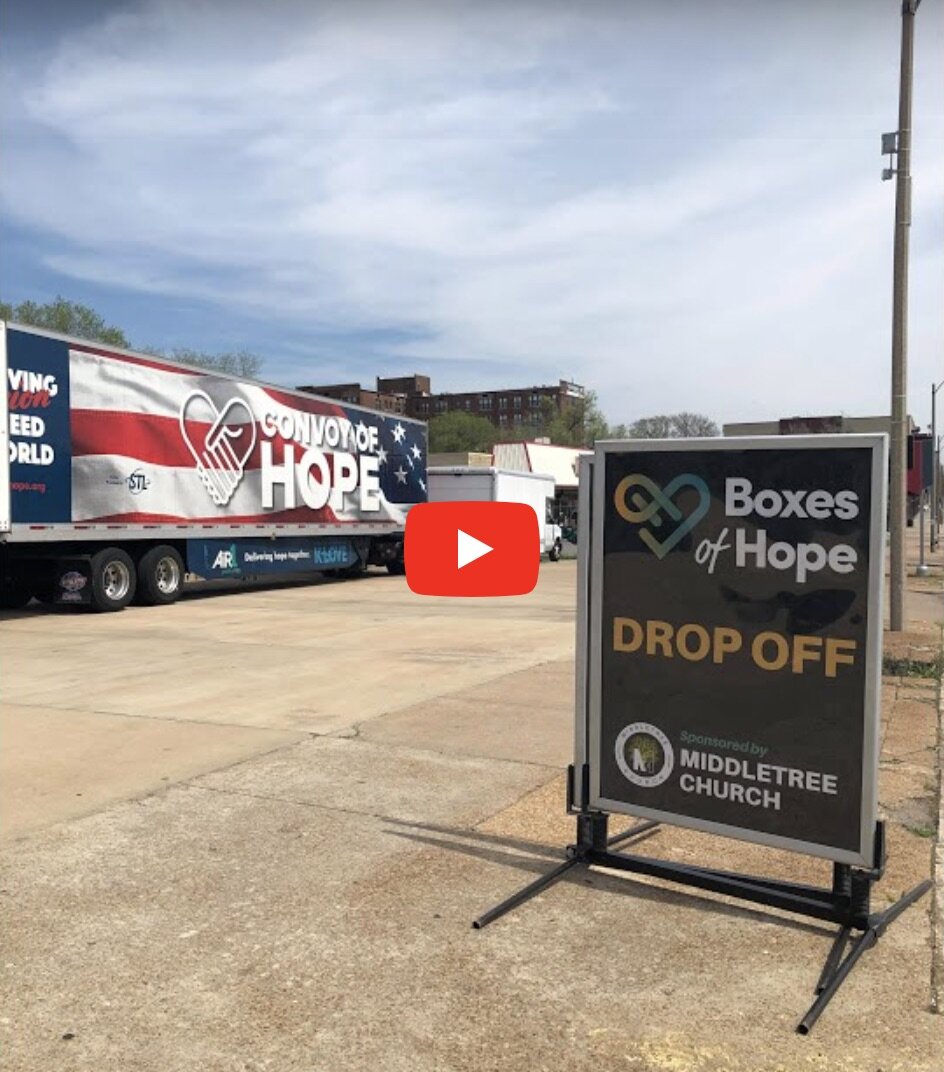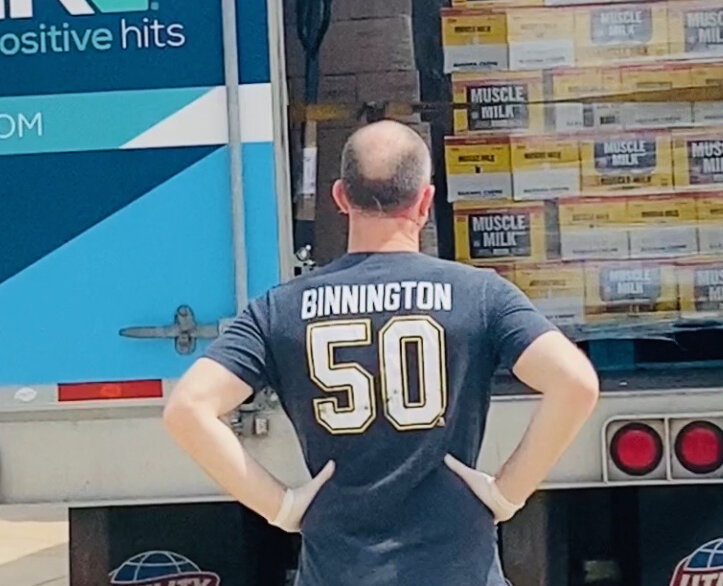Pastor and Wife Deliver Hope to the Community During COVID-19 Crisis
Every Sunday morning for the past 10 years, Pastor Brian Schmidgall has welcomed congregants to services at MiddleTree Church in the city of St. Louis.
But on Saturday, March 21, everything changed. The city issued a stay-at-home order that prevented gatherings of more than 10 people, forcing Schmidgall to close the church’s doors for the foreseeable future.
Canceling in-person meetings was tough for Schmidgall because he knew the church would have to make major adjustments and find new ways to communicate.
“We’re a church of 80 to 100 people and we hadn’t been streaming our services, so we had to do a crash course on how to stream and stay in contact,” he says. “The upside was that it put a new emphasis on reaching out to our people because we knew we weren’t going to see them in person.”
On that fateful Saturday, Schmidgall sent a mass email to his congregation informing everyone the church would no longer be meeting in person. Instead, Brian would deliver his sermons on YouTube and Facebook.
“There was still ministry going on, it just looked a lot different,” says Schmidgall. “That week was a huge learning experience on how to do things online.”
In retrospect, he thinks this ordeal was actually a blessing in disguise because it helped congregants to strengthen their faith, while opening up new opportunities to do more good work in the community.
“Bad things are bad things, but God can take things that are meant to destroy us and use them for good,” Schmidgall says. “We’ve seen a lot more people from the church who have been reaching out to those who are hurting.”
At the helm of MiddleTree’s community outreach is Schmidgall’s wife, Mary. Her community engagement actually started back in 2015 on the one-year anniversary of Michael Brown’s death. MiddleTree partnered with a nonprofit organization called Convoy of Hope to help the community of Ferguson with practical support, such as resume writing, haircuts, family pictures and organized social gatherings.
With news of the coronavirus pandemic intensifying, Mary knew Ferguson and other disadvantaged communities would bear the brunt of its impact, so she was eager to step in and help.
“As soon as we saw what the coronavirus was doing all over the world, we knew it was going to affect north city disproportionately,” she says. “Our whole church has been all about bridging the divide between the north side and the south side of St. Louis.”
Bringing Hope to the Community
MiddleTree volunteers are creating “Boxes of Hope,” simple boxes filled with food, cleaning supplies and toiletries for individuals and families who are struggling through the COVID-19 crisis.
People in need simply text the word “hope” to the church’s hotline number and an automated response asks them to share their address. Once the church receives the information, a volunteer will personally deliver a Box of Hope to that person.
Since launching the initiative about a week ago, the church has already delivered more than 50 boxes. About 40 volunteers have stepped up to staff the operation, which relies on the generosity of Convoy of Hope as well as donations from two other local church communities: One Church STL and Remedy Church.
Mary says recipients are always very grateful to receive this simple expression of love. “They’re just so appreciative that people are thinking of them and helping them in such a tangible way,” she says. “One of our church members brought over a box to someone who had just gotten home from the hospital after being treated for coronavirus. And the next day, one of their family members was mowing the volunteer’s yard out of appreciation.”
North city resident Tierra Johnson and her family have been direct benefactors of MiddleTree’s generosity.
“The box of hope was actually a decent amount of stuff, including pasta and snacks, and other things like soap, toothbrushes and shampoo,” says Johnson. “It’s ironic that they call it a box of hope because it lets me know that there is still someone out there giving back to the community.”
Mary is committed to serving the community because of the Bible’s emphasis on giving to others who are less fortunate. “We know this situation is bigger than us, but God takes our small efforts and multiplies them,” she says. “Whatever we have, whatever we can do, we want to give it to these communities.”
And her husband encourages his congregation to keep the faith and not live in fear, because God is still in control.
“God is the same, he’s faithful and these circumstances that we see don’t limit him,” says Brian. “The God that you serve when things are good, is the same God you serve when things are frustrating and confusing.”






